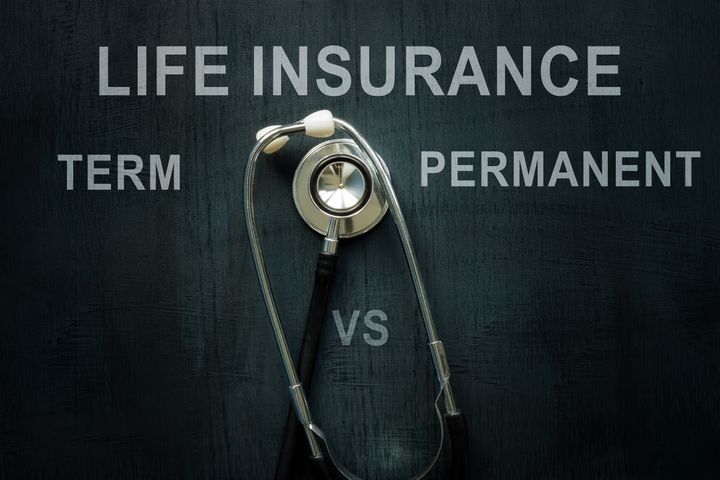Inspire Lives
Keep up to date with our news, tips & tricks, and latest information!
What do millennials need to know about life insurance, and why is it important?
Martelli Adeka
As millennials, we often overlook the importance of protecting our families. We may be in our prime, but we cannot predict what tomorrow will bring. That's why it's crucial to plan for the future and take steps to ensure our loved ones are secure. One of the most effective ways to do this is by investing in life insurance.
Life insurance provides a safety net for your family in the event of your unexpected passing. It can help pay for funeral expenses and outstanding debts and support your loved ones financially. While it may be uncomfortable to think about our mortality, planning for the worst and hoping for the best is essential. By investing in life insurance, you're giving your family peace of mind and financial security.
There are different life insurance policies, including term and permanent life insurance. Term life insurance provides coverage for a specified period, such as 10, 20, or 30 years, while permanent life insurance provides coverage for the duration of your life. The type of policy you choose depends on your individual needs and budget. However, regardless of which policy you choose, the important thing is to take action and protect your family today. Please don't wait until it's too late. Invest in life insurance now and ensure your loved ones are secure. At Kaizen Family Financial Consultants, protecting your financial future is our first priority! Contact us today!
moreWhat are the benefits of having life insurance?
Martelli Adeka
Life insurance is a financial tool that provides a death benefit to the beneficiaries listed on the policy in the event of the policyholder's death. While it may not be the most exciting topic, life insurance is vital for anyone with dependents or financial obligations. Here are some of the critical benefits of having life insurance:
1. Protection for loved ones: The primary benefit of life insurance is that it provides financial support to your loved ones if you were to pass away. This can help cover funeral costs, outstanding debts, and other financial obligations.
2. Income replacement: If you are the primary breadwinner in your family, life insurance can help replace lost income in the event of your death. This can help ensure that your family can maintain their standard of living even after you are gone.
3. Estate planning: Life insurance can be a valuable tool in estate planning, as it can help provide liquidity to cover estate taxes and other expenses. It can also be used to equalize inheritances between beneficiaries.
4. Peace of mind: Knowing that your loved ones will be financially protected in the event of your death can provide peace of mind for you and your family. This can help alleviate stress and worry during challenging times.
moreWhat is the claims process for life insurance?
Martelli Adeka
Life insurance is an essential financial product that can provide financial protection and peace of mind for you and your loved ones. If you or a loved one has a life insurance policy and need to make a claim, it's essential to understand the claims process. Here's what you need to know.
Step 1: Notify the insurance company
The first step in the claims process is to notify the insurance company of the insured person's death. You'll need to provide the policy number, the insured person's name and date of birth, and the date and cause of death.
Step 2: Provide documentation
Once the insurance company has been notified, they will send you a claims packet with instructions on what documentation you must provide. Typically, you'll need to provide a certified copy of the death certificate and any other documents the insurance company requests.
Step 3: Wait for the insurance company to review the claim
After you've submitted all the necessary documents, the insurance company will review the claim. They may request additional information or records and conduct an investigation to verify the cause of death.
Step 4: Receive a decision on the claim
moreWhat happens if I miss a life insurance payment?
Martelli Adeka
As a millennial, you may have recently started considering life insurance to protect your loved ones financially in case of your unexpected passing. However, you may question how life insurance works and what happens if you miss a payment. This blog post will specifically address the consequences of missing a life insurance payment.
First, let's define what a life insurance payment is. A life insurance payment, or a premium, is the money you pay your life insurance company in exchange for coverage. This payment can be made monthly, quarterly, annually, or even as a one-time payment. The premium amount is determined by the type of policy you have, your age, your health, and other factors.
So, what happens if you miss a life insurance payment? The answer depends on your policy type and how long you have been paying premiums. If you have a term life insurance policy, which provides coverage for a specific period, usually 10-30 years, missing a payment can have serious consequences. In most cases, if you miss a payment, your coverage will lapse, meaning you will no longer be insured.
Other permanent policies that have been enforced for a few years, and you have paid premiums regularly. In that case, you can reinstate your policy by paying the missed premium and any interest or fees charged by the insurance company. However, you may have to start with a new policy if you miss multiple payments.
moreWhat are the risks associated with life insurance?
Martelli Adeka
Life insurance is a crucial financial tool that provides financial protection to your loved ones in the event of your untimely death. It provides a death benefit to your beneficiaries, which can be used to pay for outstanding debts, funeral expenses, living expenses, or any other expenses they may need to cover. However, like any financial product, life insurance also carries certain risks, which you must be aware of before investing in it. This blog post will discuss some of the risks associated with life insurance.
1. The risk of non-payment of premiums
One of the most significant risks associated with life insurance is the risk of non-payment of premiums. You must pay your premiums on time to maintain your policy and retain coverage. This can be a significant risk if you rely on your life insurance policy to protect your loved ones financially.
2. The risk of insufficient coverage
Another risk associated with life insurance is the risk of insufficient coverage. For example, suppose you did not take out enough coverage. In that case, your beneficiaries may not receive enough money to cover their expenses after your death. Therefore, it is essential to carefully calculate your life insurance to ensure that you have enough coverage to meet your family's financial needs.
moreWho is eligible for life insurance?
Martelli Adeka
Life insurance is an excellent way to provide financial security to your loved ones in your absence. It offers a death benefit to the beneficiaries listed in the policy, which can help them meet their financial obligations, such as paying debts, covering living expenses, and achieving financial goals. But who is eligible for life insurance?
In general, anyone at least 18 years old and with an insurable interest can buy life insurance. Insurable interest means the policy owner has a financial stake in the insured person's life. For example, a spouse, child, parent, business partner, or anyone else may suffer a financial loss if the insured person dies.
However, the eligibility criteria may vary depending on the type of life insurance policy you choose. Below are some common types of life insurance and their eligibility requirements:
1. Term life insurance: This policy covers a specific term, usually 10, 20, or 30 years. It is the most affordable type of life insurance. It is suitable for people who need coverage for a limited period. To be eligible for term life insurance, you must be 18 years old and in relatively good health.
2. Whole life insurance: This policy covers the insured person's entire life as long as the premiums are paid. It also has a savings component that grows over time. You are eligible for whole life insurance as a newborn and up to 90 years old.
moreHow much does life insurance cost?
Martelli Adeka
Life insurance is a crucial financial safety net that provides your loved ones with financial support in the event of your untimely death. Life insurance costs depend on various factors, including age, gender, health, occupation, and lifestyle choices.
When you purchase a life insurance policy, you pay a premium, which you pay periodically to keep the policy in force. The premium amount is influenced by the coverage amount, policy terms, and type of policy you choose.
Term life insurance policies are the most affordable type of life insurance policy. These policies provide coverage for a set period, typically ranging from 10-30 years. The premium for term policies is generally lower than permanent life insurance policies.
The death benefit is paid to your beneficiaries if you pass away during the policy term. The death benefit amount is also significant in determining the premium amount. As the death benefit amount increases, the premium amount also increases.
The average cost of term life insurance for a healthy 30-year-old male with a 20-year policy term and a $500,000 death benefit is approximately $20-$30 per month. However, the cost varies based on age, health, lifestyle habits, and occupation.
moreWhat is the difference between a final expense and a term life?
Martelli Adeka
What is the difference between a final expense and a term life?
The main difference between a final expense and a term life insurance policy is the length of coverage provided. A term life policy is temporary, while a final expense policy is designed to last your whole life.
A term life insurance policy provides coverage for an allotted period of time (usually 10-30 years) and pays out if you die within that timeframe. However, with this plan, your coverage ends once the term has expired—even if you are still alive.
On the other hand, a final expense policy is usually more expensive than a typical term plan but lasts longer. It will cover any funeral costs or debts left behind when you pass away and doesn’t expire until you are gone. Additionally, it typically requires no medical exam for approval because it covers specific needs instead of traditional fully underwritten Whole Life Insurance plans.
moreDoes a car accident affect your life insurance?
Martelli Adeka
Does a car accident affect your life insurance?
It can if you are applying for life insurance after the accident.
It also can if you have an in-force policy that covers you for accidents. You can van file a claim to access money from your life insurance policy.
I hope that help.
moreHow much life insurance does a married woman need?
Martelli Adeka
How much life insurance does a married woman need?
The number can vary greatly depending on her family's financial situation and lifestyle. The coverage amount depends on many factors, including the woman's family's financial situation, lifestyle, and other investments.
One way to determine how much life insurance is necessary is to consider the "10x earnings" rule of thumb. This rule suggests multiplying a spouse's annual income by 10 to determine the amount of coverage that should be purchased. For example, if a spouse earns a yearly income of $50,000, she would need at least $500,000 in life insurance coverage.
moreWhat are some common life insurance questions?
Martelli Adeka
What are some common life insurance questions?
Buying life insurance can often be a confusing and overwhelming process. With so many different products on the market, it's hard to understand which is best for you and your family. To ensure you're making an informed decision when purchasing life insurance, there are some critical questions to ask yourself. Below are questions I get often:
What is life insurance?
How much does life insurance cost?
Who needs life insurance?
What type of policy should I get?
Do I need additional coverage besides my employer coverage?
What are the different types of policies available?
Are there any tax advantages to having a life insurance policy?
moreWhat are the benefits of buying life insurance from an independent agent?
Martelli Adeka
What are the benefits of buying life insurance from an independent agent?
There are advantages to forming a good relationship with an independent agent or agency.
I got that question quite often in my dealing with clients.
Here are some of what I usually tell my clients.
• Buying life insurance through an independent agent allows one to find a policy and rate according to their needs.
• An experienced independent agent can search the market for the best plan, review any potential changes, and negotiate with the company underwriters directly on your behalf.
• The agent's assistance ensures that claims are handled stress-free and with peace of mind during uncertain times.
moreAt what age can you cash out your life insurance policy?
Martelli Adeka
At what age can you cash out your life insurance policy?
You can cash out your policy once you are 18 years old if the policy has been turned over to you as the owner. If you own the policy that have cash value, you can cash it out / surrender, or borrow against your cash value at any time, in most cases without any tax implication.
I hope that answers your question.
moreWhat are the benefits and drawbacks of term life insurance and whole life insurance? Which one is better as a long-term investment option and why?
Martelli Adeka
Say your budget is the same for both plans:
When you compare and contrast the two most common types of life insurance policies ( Term and Whole life ) , They both have their respective advantages and disadvantages.
Before making a choice, consider factors such as premiums, coverage amount, policy duration and cash value accumulation.
One of the two will be more beneficial to choose over the other for different situations.
moreYou Can't Put a Price on Peace of Mind
Martelli Adeka
No one wants to think about the possibility of their death, but it's something that we all have to face. Unfortunately, the tragedy of losing a loved one affects many families.
The good news is that you're only a few steps away from creating comprehensive financial protection for you and your family, preparing your children to achieve their goals, and leaving behind an incredible legacy.
Unexpected loss often results in the ultimate sacrifice of hard-earned assets, expensive loans to ease the financial strain, and life-altering changes for spouses and children - all adding to unbearable heartaches.
But with the help of a Young Professional like myself, you can get proper life insurance coverage that will give you peace of mind knowing that your loved ones are taken care of financially if something happens to you.
Please get in touch with us today to create a bright financial future for you and those you love.
954-399-7878
info@thekaizenfinancial.com
moreHow Do You Resist Temptation in Life and in Your Finances?
Martelli Adeka
Resisting temptation in life can be a difficult habit to form. Still, it's vital if you want to reach your highest potential and continue to make strides in your personal and professional life. Temptation can come from unhealthy relationships, bad habits, material possessions, or anything else that brings a temporary pleasure that ultimately doesn't lead anywhere positive.
Every day is a new opportunity to practice resisting temptation and building resilience. Begin by being honest with yourself about what temptations you have been giving in and why. Then, please understand why you have been engaging in this behavior and how it has affected you. Once you become conscious of your desires, it will be easier to resist them.
Create a plan for how you will handle temptations when they come up. This could include setting daily reminders to keep your goals on track or making mental notes about how this action could affect future hopes or aspirations. Healthy habits such as meditating or journaling can also help build strength when facing temptations.
Reach out for support from friends, family members, or even professionals who can remind you why staying away from temptation benefits your well-being. Having someone lead by example is always helpful and motivates when things get tough; practice reaching out before making big decisions so that others can provide support if needed.
moreWelcome to our Inpire Lives
Martelli Adeka
Here you will find many interesting articles to help you in your financial endeavors. If you have any questions about our business or want to reach out to us, we would love to hear from you.
Thank you!
more















